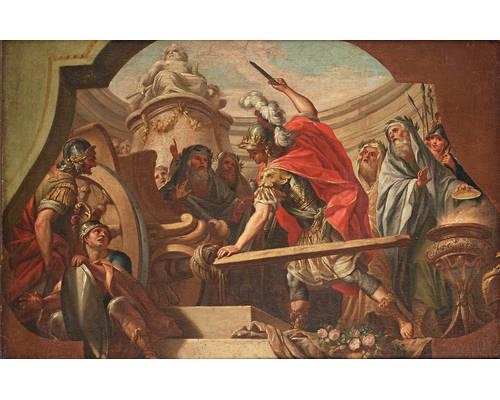FJAG
Army.ca Legend
- Reaction score
- 14,375
- Points
- 1,160
ModlrMike said:I'm not sure that these are what he should be looking at. I think that one of the reasons that Mr Trump appealed to Joe Average American was their being fed up with government by regulation rather than legislation. Lobbyists at many federal agencies managed to get regulations put in place that made life easier for their principals, and harder for average folk. The EPA comes to mind - it is apparently possible to follow the EPA rules, and contravene them at the same time (I have no proof of that, so it may be an urban legend).
One has to keep in mind though that the executive (except where it has direct constitutional authority) cannot make regulations unless the legislature in a particular statute has delegated a specific agency/department/ministry the power to make regulations. As an example look at s 12 of the NDA http://laws-lois.justice.gc.ca/eng/acts/n-5/page-2.html#h-9 The process is similar in the US (for starters you can look here https://en.wikipedia.org/wiki/Code_of_Federal_Regulations).
This is a very common procedure because legislatures do not have the time to work out all the details of how its legislation should be put into effect and leaves this to the appropriate ministry to work out. If the legislature disagrees with the way a given regulation effects the founding legislation then the legislature can amend the statute can limit the agency's power to make the offending regulations.
I'm sorry, because as I've said before, I believe we have far too many and too detailed regulations but this is not because there is some great conspiracy or fraud by the executive to negate the legislature's powers. In Canada this is not so apparent because our executive is formed from the ruling party in the legislature and generally the regulations match the legislatures intent (at least until the next election and both the legislature and executive change). It is much more apparent as a point of conflict in the US where the legislature and the executive are often/on occasion formed by opposing parties.
ModlrMike said:Again, I think you're right. Perhaps some of the problem is that we're not producing high school or college graduates suited to work those jobs. When you look at the number of adverts for tradesmen or skilled workers, you can see why we have programmes like the TFW, and why factories are moving to where the workforce is. If we focused less on university and more on college and the trades, perhaps we wouldn't be losing so many of these technical jobs.
I definitely agree that we should greatly reduce public support for universities except for programs that benefit the country as a whole (eg. teaching, engineering, medicine, hell even law) Anyone who wants to study the philosophy of 12th century nihilists or the mating rituals of the Baffin Island ptarmigan should do so on their own dime. The money saved should be redirected to community college programs for trades and skilled workers.
That however does not solve the problem that many high paid skilled jobs (both blue and white collar) are disappearing and I have no more solution to that than our current political parties (targeting outsourcing the trend to outsource offshore looks attractive on the surface but is impractical in the long run. Manufacturing will always gravitate towards a solution that cuts production costs to protect market share. Tariffs will only impact the consumer who is primarily your ordinary Joe Lunch Bucket again.
ModlrMike said:Evaluating the government from the perspective you describe has never been a factor in American politics, and you only invoke Godwin if you example isn't factually correct. Not that I take issue with your comparison, but I wouldn't put Mr Trump in the same class as the other four you've mentioned. He may be bombastic and display some nationalist tendencies, but I don't see the US erecting labour or re-education camps any time soon.
I think that is only because the US has a very firm constitution that protects the balance of power as between the legislature, executive and judiciary. If you undercut any of those three the slippery slope is opened up. Take a look at the number of countries who have given the power to the executive to fire and replace the judiciary or who have a "rubber stamp" legislature that produces the laws that the executive demands.
Liberty is a fragile thing.
:cheers:



